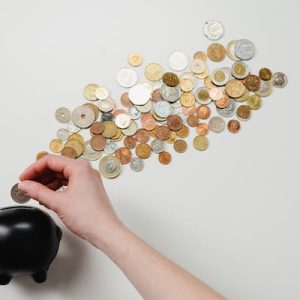Modern marketing system of stores, markets, and online shops are set up in such a way to make us buy more. This is called an impulse buying.
While impulse buying can be a tricky term, psychology states a number of reasons why an individual may go overboard with their shopping impulses. Are you wondering what is impulse buying about? Well, you can check for the following signs either for yourself or in anyone around you:
If you love shopping – People who love to shop or ‘shopaholics’ are most prone to impulse buying. The urge and excitement to acquire something new overpower our abilities to understand the feasibility or our situation of buying something.
Loss aversion switch – This is when retail stores and online sites offer us ‘discounts’. Most of us get excited about discounts and nobody wants to miss it. The thought of missing out of such discounts is what describes our loss aversion switch, which retailers clearly take advantage of.
Twisted heuristics – Twisted heuristics come into play when online and offline retailers either offer products packaged in bulk or offer ‘free extras’. Such tactics prevent us from researching or even thinking further, activating our impulsiveness nature and push us to buy something that we don’t need.
The desire to save – While most individuals look to saving more than spending, this desire to save has encouraged retailers to introduce another form of marketing tactic. When there are discounts, retailers often also provide information on how much you can save. This motivates impulsive shoppers and buyers who don’t think much and instead, go with their impulsive instincts.
Consumption of novelty – The simple urge to either show-off what you have, somewhat similar to when people choose to buy branded clothes irrespective of their price and quality is another thing that triggers an impulsive behavior amongst individuals.
The above points confirm that yes; we do buy things that we do not actually need. The logical question arises: how can we cut down our impulse buying?
1. Friends stimulate your shopping
Friends may be divided into two categories: the ones who help you resist buying anything and, vice versa, the ones who encourage you to buy everything in your sight. That is why it is important to know with whom you should go shopping just to prevent yourself from buying unnecessary things. Think of your credit card bill beforehand not to get surprised.
2. Stay away from shops when you are stressed
If you are in a bad mood, stressed or disappointed, do not come close to the shops for you can fail to resist the willing to buy. The only possibility is to leave your wallet with cash, credit cards, or even ID and only then you may go for a walk to come down the nerves. Still, try to keep o your way out of the shops. Some consumers try making their mood better with a help of shopping, some even use credit cards or short-term loans online to buy something. It’s not worth to borrow money and make financial decisions while you’re stressed because it can importantly harm your budget.
3. A budget will save you
A lot of people use budgeting to save some money. Budgeting limits your finances but it’s very useful extent for keeping some money in your pocket. Writing all your expenses down will show you the exact statistics where you spend all your money. Cutting expenses can be hard, but it is worth trying. You will view where all your money goes and this will give an opportunity to reconsider whether you spend it in a right direction. Find the courage to say “no” if your direction is not the one you’d like it to be.
4. Do not agree at once!
The phrases as: “No, thank you” or “I will think of it” will save you. The pressure that we feel at the stores is quite high and sometimes we need the employees to pull their efforts down. The only thing, that you will notice, will be the look of disapproval in the salesmen’s eyes, but this will not make you purchase an unnecessary thing. Think twice before making a decision to buy anything. Ask yourself whether you really need it or you may get on without it.
5. Special offers can be more tricky than beneficial
The marketing consultants are perfectly aware how special offers influence on the customers. That is why you can meet so many of them in any supermarket. Any offer is made specifically to make you open your wallet and spend money. The initial prices of products essentially differ from the ones that we see on the supermarket shelves. To sum up, try to review your attitude towards your expenses and think whether you would like to change the situation. The most important thing here if your willingness.
Last thoughts:
A lot of people cannot fight their impulsive instincts, yet some people can actually bring about a change by fighting off this thing called ‘impulse buying’. Impulse buying can be dangerous for your finances, either in the present or future. The next time you have thoughts about purchasing that discounted dress across that window store, think again!



